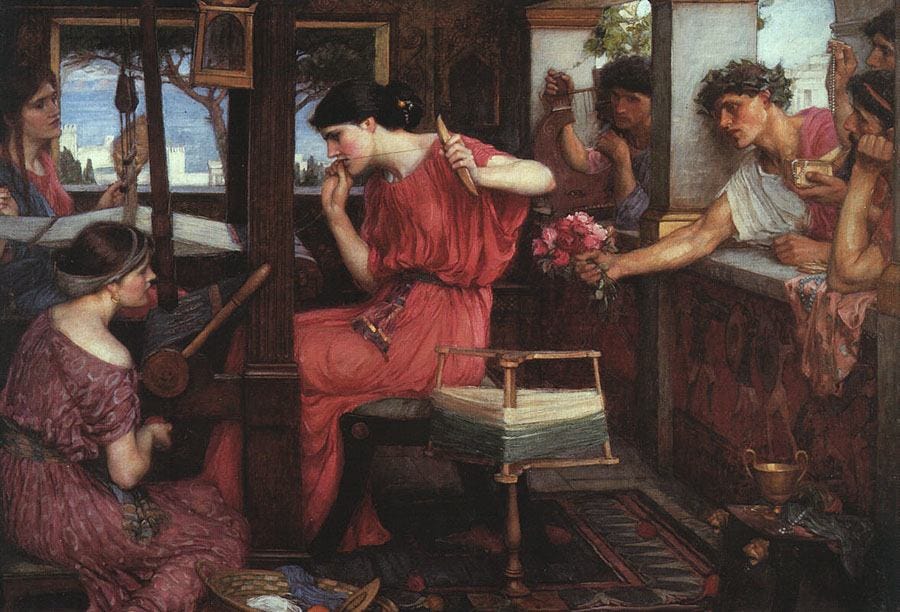Penelope and the Suitors by John William Waterhouse
“So they urge on marriage, and I wind a skein of wiles. First some daimōn breathed the thought in my heart to weave a garment, after setting up a great fabric in my halls | fine of thread and very wide; and I straightway spoke among them: “Young men, my wooers, since godlike Odysseus is dead, be patient, though eager for my marriage, until I finish this garment—I would not that my threads should perish useless—a shroud for the hero Laertes against the time when | the fell fate of grievous death shall strike him down; lest any one of the Achaean women in the land blame me, if he were to lie without a shroud, who had won great possessions.” So I spoke, and their proud hearts consented. Then by day I would weave the great web, | but by night would unravel it, after having placed torches by me. Thus for three years I went unnoticed and persuaded the Achaeans.” – from Homer's Odyssey
Storytelling is often compared to weaving. The insect that instinctually crafts its own web is heralded as the bardic deity: the Sumerian Spider goddess Uttu, Ananse of the Ashanti. The Moirai of Greece used their dexterous fingers to spin, spool, and splice the thread of a person’s fate. And, likewise, in Norse Mythology, the three Norns controlled the threads of personal destiny. Ariadne’s red thread that Theseus follows through the Cretan labyrinth can be read as a way of weaving the hero into a narrative. Without a thread the labyrinth cannot be navigated or “told”.


